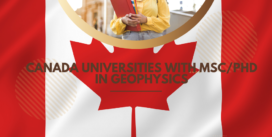- Warehouse Jobs in Singapore with Visa Sponsorship: Your Ultimate Guide to a Thriving Career
- Step-by-Step Guide on How to Apply for New Zealand International Teacher’s Immigration Pathway: Eligibility, Documents Needed, and Job Websites with a $10,000 NZD Package
- New Zealand International Teachers Pathway: Eligibility and Application Guide
- Find Caregiver Positions with German Visa Sponsorship
- Farm Worker Visa Sponsorship in Finland
Exciting Research Opportunity in Nanotechnology in Australia

Are you interested in tiny things that can do amazing stuff? Professor Qianqian Shi at the University of Newcastle in Australia seeks smart, motivated people to join her research team. They’re working on some cool science that could change how we detect diseases and harmful chemicals.
What’s It All About?
Imagine small particles of gold or silver that can interact with light in special ways. These particles can be arranged into structures that are incredibly sensitive to their surroundings. It means they can detect tiny amounts of substances, like molecules indicating a disease or water pollutants.
Why Is This Important?
This technology could lead to all sorts of helpful applications:
1. Medical tests that are faster, more accurate, and easier to use
2. Better ways to check if our food and water are safe
3. New tools to spot dangerous chemicals in the environment
4. Improved security systems for detecting explosives or drugs
What You’d Be Working On
If you join the team, you might be:
1. Creating new types of these special nanoparticles
2. Finding better ways to put them together into useful structures
3. Developing devices that can use these particles for sensing
4. Testing how well these sensors work for different applications
Who They’re Looking For
Prof. Shi wants people who:
1. Have a PhD in chemistry or a related field
2. Know a lot about making and studying tiny materials
3. Have experience with some specific areas like electrochemistry or biosensors
4. Can work in Australia
The research involves a mix of chemistry, physics, and sometimes biology. So, if you love learning and trying new things, this could be perfect for you!
Why Australia?
Doing research in Australia is great because:
1. The universities have top-notch equipment and facilities
2. There’s lots of funding for this kind of research
3. Australian scientists often work together and share ideas
4. The lifestyle is awesome – beautiful beaches, friendly people, and great weather!
What’s So Special About This Research?
This work is exciting because it’s pushing the boundaries of what’s possible with nanotechnology. The team is trying to create sensors that are:
1. Super sensitive – able to detect incredibly small amounts of substances
2. Fast – giving results in real-time
3. Easy to use – potentially leading to simple, portable testing devices
4. Versatile – useful for many different applications
Some Cool Possibilities
Imagine a future where:
1. A tiny sensor in your phone could detect diseases just from your breath
2. Farmers could instantly check their crops for pesticides or diseases
3. Doctors could monitor your health continuously with a small, wearable device
4. Environmental scientists could track pollution levels in real time across entire ecosystems
This research could help make these ideas a reality!
The Challenges
Of course, there are some tricky parts to figure out:
1. Making sure the sensors always work reliably
2. Keeping the nanoparticles stable so they last a long time
3. Finding ways to make the technology affordable
4. Turning the lab discoveries into real-world products
That’s where creative problem-solving comes in – and why they need bright minds like yours!
Why Join This Team?
Working with Prof. Shi and her group could be an amazing experience. You’d get to:
1. Work on cutting-edge science that could help people
2. Learn all sorts of new skills and techniques
3. Collaborate with other smart, passionate researchers
4. Potentially see your work published in scientific journals
5. Present your findings at conferences (maybe even in exciting locations!)
6. Build a strong foundation for a career in science or technology
How to Apply
If this sounds like something you’d love to do and you meet the requirements, contact Prof. Shi at qianqian.shi@newcastle.edu.au.
The deadline is August 25, 2024, so don’t wait too long!
Remember, science is all about curiosity and trying new things. If you’re excited about exploring the world of the ultra-small and potentially making a big difference, this could be the perfect opportunity for you. Good luck.

